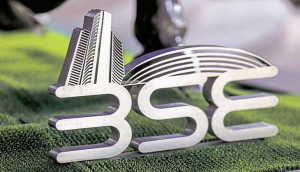
1) The GST bill was introduced the Lok Sabha on 19 December, 2014 by Finance Minister Arun Jaitley
2) The bills aims to amend the Constitution to bring Goods and Services Tax in to place which would subsume numerous indirect taxes like Central indirect taxes, including the Central Excise Duty, Countervailing Duty, Service Tax, etc. The one tax system will also subsume the existing Value Added Tax (VAT), octroi duty, and luxury tax.
3) GST is expected to curb tax evasion and cut down the multiple levels of taxation which make it a cumbersome process. It will also reduce the cascading effect of taxes.
4) The Bill will insert a new amendment in the Constitution which will give equivalent powers to the Central and the state government to make laws on the taxation of goods and services.
5) Centre will fix, levy and collect the tax on goods and services in the inter-state trade and commerce. Consequently, the tax collected will be divided between the Centre and the state government in a manner pre-decided by the Parliament, by law, on the lines of recommendations made by the GST council.
6) A GST council will be put be place which will be entrusted with the task of optimising tax collection for goods and services by the Centre and states. The council will comprise Union Finance Minister as the Chairman, the Union Minister of State in charge of revenue or Finance and a Minister in charge of Finance or Taxation, who will be nominated by the state government of each state.
7) The GST council will be a body which will decide the taxes levied by the Centre, state and the local bodies which will be later submerged with GST. It will also decide what goods and services will be covered under the GST and what rate of tax will be levied on them.
8) Alcohol for human consumption is excluded from GST. Also, the GST Council will decide when GST will be implemented on certain categories of goods, including crude oil and petrol.
9) It is obvious that states will incur some loss when the taxation system will change in the country. In a major relief, the government will compensate the states for up to the period of five years.
10) An additional tax of 1 per cent will be levied and collected by the Centre on the supply of goods and services in inter-state trade. This additional tax will be shall be assigned to the states for a period of up to two years, or as recommended by the GST panel.








![BJP's Kapil Mishra recreates Shankar Mahadevan’s ‘Breathless’ song to highlight Delhi pollution [WATCH] BJP's Kapil Mishra recreates Shankar Mahadevan’s ‘Breathless’ song to highlight Delhi pollution [WATCH]](https://images.catchnews.com/upload/2022/11/03/kapil-mishra_240884_300x172.png)

![Anupam Kher shares pictures of his toned body on 67th birthday [MUST SEE] Anupam Kher shares pictures of his toned body on 67th birthday [MUST SEE]](https://images.catchnews.com/upload/2022/03/07/Anupam_kher_231145_300x172.jpg)






